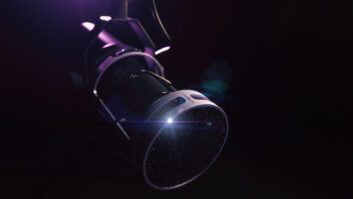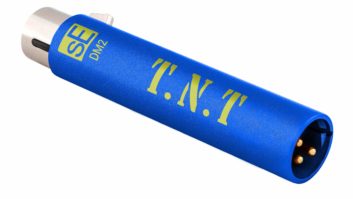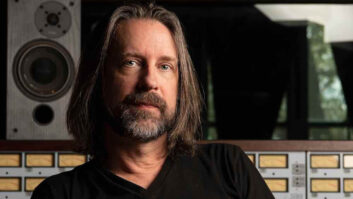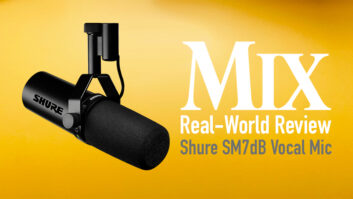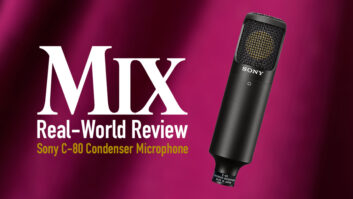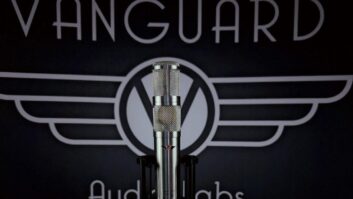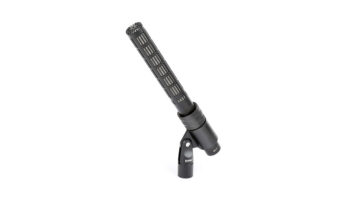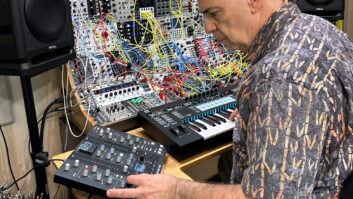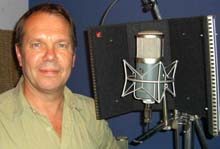
For his current projects, UK-based recording engineer Chris Porter (pictured) has come to rely on sE Electronics’ Gemini large diaphragm, dual-tube microphone and the company’s “portable vocal booth,” the Reflexion Filter. In his 26 years in the business, Porter has worked with vocalists such as Tina Turner, George Michael, Take That and Sir Cliff Richard.
“I started off engineering for Tony Visconti at Good Earth studios in London,” says Porter. “Not long after that I met up with Wham! and worked on all of their early records, and went on to work with George Michael for 14 years. It was engineering and production, all the big hits: ‘Careless Whisper’ and ‘Wake Me Up’—everything really. I then did Take That in the ’90s and had a nice big hit with ‘Back For Good.’ I’m currently working on the tour DVD, doing the audio for that. I’m recording the Manchester gigs and we’re going to make [the DVD] from those two concerts.”
“I produced about half of the Discography album for The Pet Shop Boys and am currently working on an album called Story Man with Chris de Burgh. I’m also working with Cliff Richard doing a duets project with him. There’s also Hall & Oats and Tina Turner.”
The Gemini is now Porter’s go-to microphone. “I immediately tried it out on some guitars and was very impressed,” he says. “I’ve since recorded some vocals with Cliff and he sounds fantastic—it suits his voice perfectly. It has a lovely, warm, crisp sound. I was impressed with the construction, as well. The units look really well made and solid. The sound is really good. I’m waiting for the opportunity to try others in the range.”
Porter was also one of the first producers to try out the company’s Reflexion Filter. “It’s very effective,” he says. “I was recording a band at Metropolis [Studios in London] and they’ve got a very large live area there, and I was using the Reflexion Filter on the guitars to contain them. You do get a really good image and it takes out a lot of the background reflections so in that situation I found it very useful.
“I also use it in my vocal booth,” Porter continues. “Generally, so you can see the vocalist, you have them standing not very far from a glass window and, of course, you are getting bouncing sibilance back from the window into the mic and it can give you really blurry s’s and t’s. The Reflexion Filter cleans those up nicely and I find it also helps control the bottom end; you get a really good bottom end on the vocal. It really does make it sound like you have a very expensive booth. Such a simple idea!”
For more information, visit www.seelectronics.com and www.sonic-distribution.com/2/US/SE/opening.htm.
